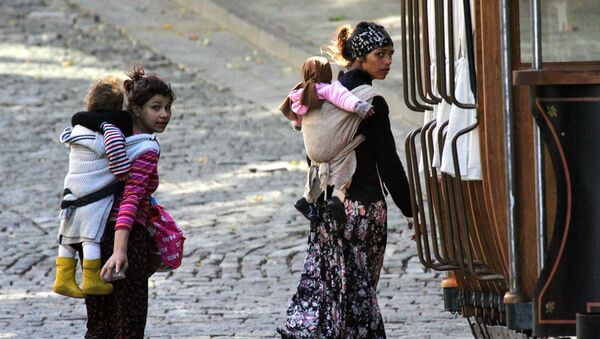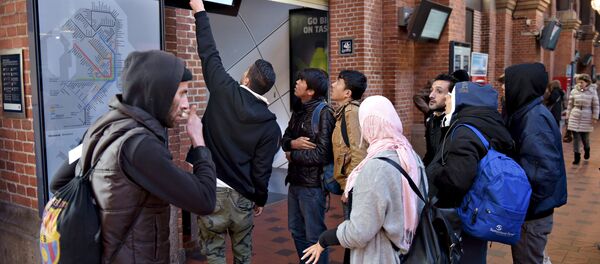"It may be that they are homeless here, but our impression is that many of them have their own homes back in Romania," Kenneth Damkjer told Danish newspaper Berlingske.
Additionally, public complaints against the beggars and squatters have increased as per police records. In Denmark, it is not permitted to stay overnight in open public spaces, such as city parks and squares and neither is it allowed to sleep on privately-owned or municipal properties. Similarly, it is not permitted to stay in private areas, violations of which are fined. According to Damkjær, the current legislation is "somewhat inadequate."
"What they [the Roma] have most respect for, it is expulsion. However, this cannot not be done because they are EU citizens. If offenders were deported instead of prison, it would have a preventive effect. It may not seem so daunting to sit in a Danish jail or being fined," Damkjær said.
"At present, police do not have authority to remove camps on public streets, which I believe to be unsustainable," Jensen told Danish national newspaper Berlingske, ensuring that there should "room left for vulnerable and homeless locals, who also are part of our city."
Jensen stressed that cleaning up the beggars and illegal camps is a task for the police, which has not been properly addressed. The Danish government's so-called 2025 plan paves the way for criminalizing all forms of illegal stay.
"Unfortunately, a removal is often only a short-term solution, because we have experienced that the illegal camps soon reappear either at the same spot or nearby," Jensen told Berlingske.
Meanwhile, Roma beggars have become a common sight in all the Nordic countries, despite the harsh climate. Over the last few years, Denmark's northern neighbor Sweden has been overwhelmed with Roma beggars from Romania and Bulgaria. Earlier this year, government-appointed National Coordinator for Vulnerable EU Citizens Martin Valfridsson found that there were around 4,000 Roma in Sweden, a nation of almost 10 million, Swedish national broadcaster SVT reported.
#Poliskampanj mot sittande #tiggare — DN.SE Bra att något görs kring #tiggeriet https://t.co/6rpC3jVoFO
— Ronny Fredriksson (@RonnyFredrik) May 10, 2016
A decade ago, begging was still considered eradicated in Sweden. In 1964, the law of 1847 against begging was successfully abolished as obsolete, as the welfare state was considered to be all-encompassing. Today, Stockholm, Malmö and Gothenburg are among the cities with the most beggars per-capita in Europe. More and more locals express uneasiness about the beggars, who sometimes behave aggressively. At present, the Swedish government is considering re-introducing the begging ban.
"It is our very strong recommendation not to give money to beggars. It turns panhandling into an occupation; the children at home in Romania are abandoned and often miss school when the parents are away. To give money encourages a life with no future; moving from country to country does not solve their problems."
"Det finns tusentals #tiggare i Sverige de flesta lever i misär och en del utnyttjas grovt" BORT MED DETTA, #svpol https://t.co/oB6tbwIB6L
— Nils Nilsson (@nn1684) August 19, 2016







